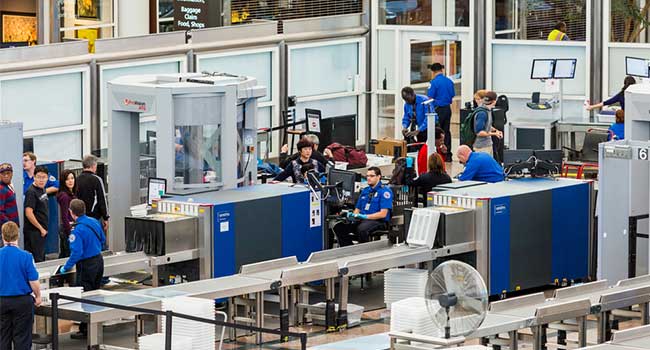
Government Shutdown: TSA Union Warns of "Massive Security Risk"
TSA agents are calling in sick for work, and even quitting altogether, following days of unpaid work due to government shutdown.
- By Sydny Shepard
- Jan 11, 2019
The government shutdown drags into week three, leaving federal employees, including TSA agents without pay. At first, there were screeners who just called in sick, not wanting to make the costly commutes to work for no compensation, but now, with no end to the government shutdown insight, they have begun to quit altogether, according to the TSA Union.
In a statement released Tuesday, the American Federation of Government Employees, which represents the workers, warned that safety could take a big hit in transit hubs as the government shutdown continues.
"Every day I'm getting calls from members about their extreme financial hardships and need for a paycheck," Hydrick Thomas, the organization's TSA Council president, said. "Some of them have already quit and any are considering quitting the federal workforce because of this shutdown. The loss of officers, while we're already shorthanded, will create a massive security risk for American travelers since we don't have enough trainees in the pipeline or the ability to process new hires."
:last week AFGE launched a lawsuit against the federal government for forcing federal employees to show up to work uncompensated, calling the demands, "inhumane."
“It is completely unacceptable that the women and men who risk their lives safeguarding our airports are still required to report for work without knowing when they’ll be paid again,” AFGE National President J. David Cox Sr. said.
The statement from the AFGE also paints a picture of the security risk that will be established if the government shutdown continues.
“The loss of officers, while we’re already shorthanded, will create a massive security risk for American travelers since we don’t have enough trainees in the pipeline or the ability to process new hires," Thomas said. "Our TSOs already do an amazing job without the proper staffing levels, but if this keeps up there are problems that will arise – least of which would be increased wait times for travelers.”
About the Author
Sydny Shepard is the Executive Editor of Campus Security & Life Safety.